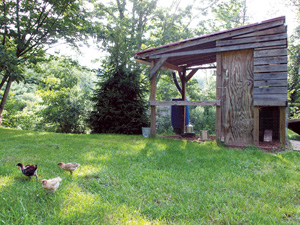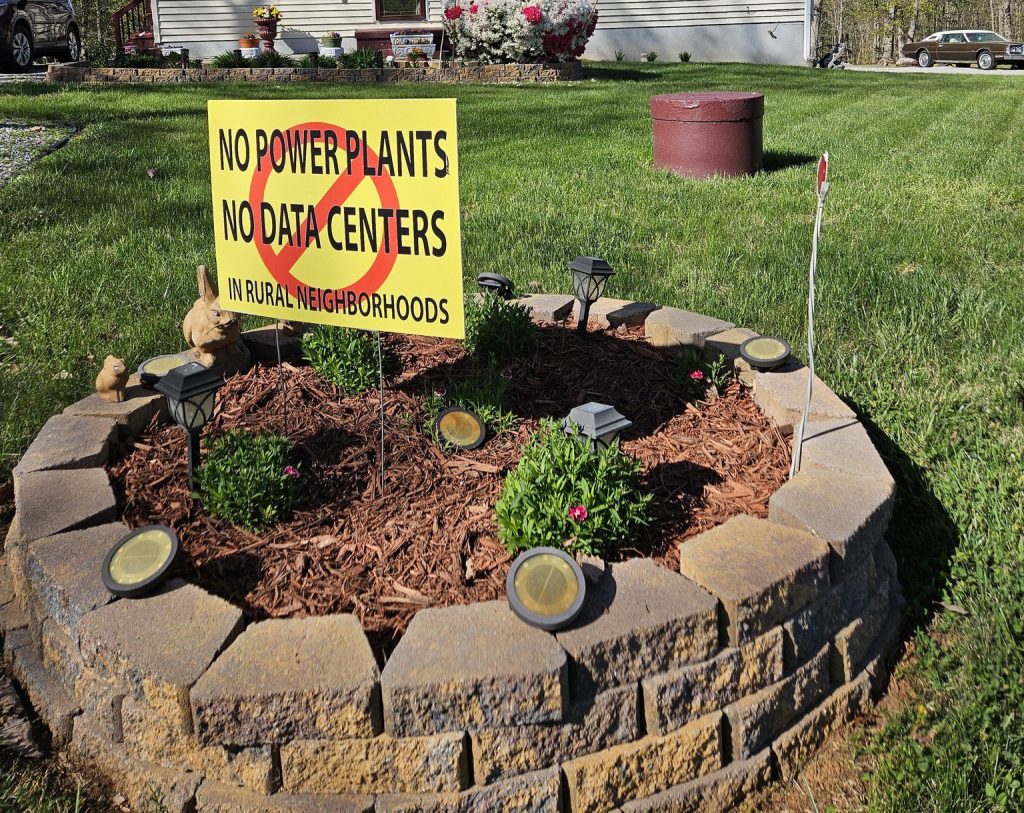No Longer A Rural Thing

Young chickens forage outside the chicken coop in Foscoe, N.C. Photo by Katie Boyette
By Jamie Goodman
During the two days that my friend’s first batch of chickens were hatching, she barely left the incubator’s side, even to attend her own housewarming party.
Katie Boyette, a fiber artist and kitchen manager at a local company that produces food bars, recently moved with her family to an old farmhouse in the vibrant community of Foscoe, N.C., drawn to the house for several key reasons—a large yard with an already-established garden; fruit trees scattered across the property; and, of all things, a well-tended but empty chicken coop.
“I had fond memories of gardening with my parents as a kid, and wanted my own children to have that experience,” said Boyette, a 36-year-old mother of two. “I like the idea of knowing where my food comes from.”
From optometrists to artists, attorneys to pet store owners, there is definitely a movement afoot among everyday folk to replace the supermarket mentality with something more tangible, incorporating various levels of sustainability into their everyday lifestyles.
Websites and publications dedicated to rooftop and backyard gardens—such as UrbanOrganicGardening.com and Urban Gardening Magazine—are flourishing. Major urban areas like New York City and San Francisco long ago perfected the art of maximizing minimum space. Today, networks of people in cities and towns across the country are converting rooftops and landscaped backyards into edible Edens.
A few years ago, Boyette started growing vegetables and herbs in a small raised bed garden. Her current garden provides a fair amount of the family’s fruits and vegetables during the summer; she supplements by shopping at local health food stores and her regional farmers market.
According to the Department of Agriculture, farmers markets are growing at an exponential rate. The U.S. currently has over 6,100 farmers markets, a 16 percent increase from 2009; nearly 900 of those operate during the winter months. And in spite of myths about overpricing, studies by schools such as Seattle University and New York’s Bard College have shown that prices at farmers markets are typically lower than at supermarkets.
Small communities are getting into the game as well, offering more incentives for town residents to increase their sustainability and decrease their footprint. In an effort to reduce landfill waste, the town of Boone, N.C., offers free composting bins to residents within the town limits who request one. State and county agriculture cooperatives offer rain barrel discounts and give-aways to encourage using rain rather than municipal water for lawn care. And communities such as Wheeling, W.Va., now supply communal garden space for residents who have no place to garden.
As for the the chickens, Boyette’s original brood of four hatched during her housewarming party in late June; she is now incubating a second batch of 15. Her feathered friends live in a tidy coop with a roaming yard and a rain catchment system for watering.
“I hated chickens when I was growing up,” Boyette said. “Now, I just want my kids to have eggs from happy chickens. And for parents, it’s an incredible lesson to teach the kids how to take care of [living] things.”
Asked what she thinks about the growing “back-to-the-land” urban trend, Boyette said, “I have met lots of people wanting to keep chickens in their backyards, and people who are finding creative ways to produce food with limited space. It’s a very cool movement.”
So whether you simply like to compost your grass clippings or harbor secret dreams of fresh eggs every day, getting in tune with going back-to-the-land doesn’t mean you have to shed your city ways.
Related Articles
Latest News

Leave a comment
Your email address will not be published. Required fields are marked *




